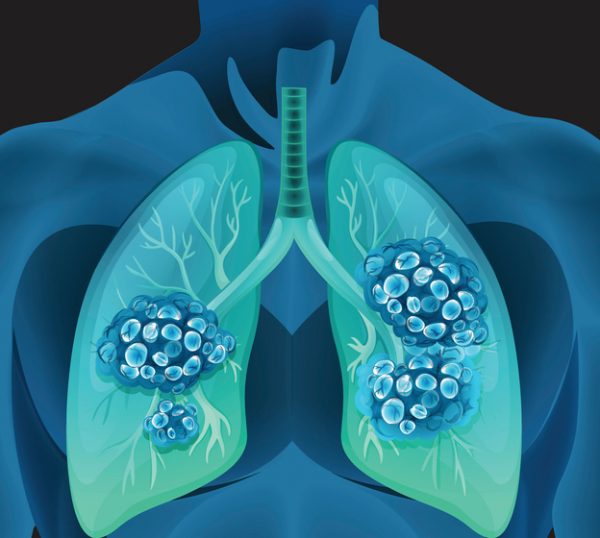
A targeted cancer therapy from partners AstraZeneca and Daiichi Sankyo met a key goal in a pivotal lung cancer study, but the companies also revealed an unspecified number of patient deaths, clouding the preliminary results reported on Monday.
The drug, datopotamab deruxtecan, is part of a multi-billion dollar partnership between AstraZeneca and Daiichi Sankyo. The latest trial results are from a Phase 3 study evaluating the therapy in patients with advanced non-small cell lung cancer (NSCLC). Compared to chemotherapy, the companies reported statistically significant improvement in progression-free survival, a measure of how long patients live without their cancer worsening. This measure is one of two main goals of the Phase 3 study.

With the Rise of AI, What IP Disputes in Healthcare Are Likely to Emerge?
Munck Wilson Mandala Partner Greg Howison shared his perspective on some of the legal ramifications around AI, IP, connected devices and the data they generate, in response to emailed questions.
Overall survival, how long treated patients live, is the other main goal. AstraZeneca and Daiichi Sankyo said these data are not yet mature and the trial will continue in order to assess this endpoint. Investigators and study participants will remain blinded.
Datopotamab deruxtecan belongs to a class of therapies called antibody drug conjugates (ADCs). The AstraZeneca and Daiichi Sankyo drug pairs the targeting antibody datopotamab with deruxtecan, a toxic drug payload. Datopotamab targets TROP2, a protein abundant on the surface of cancer cells, including those of NSCLC.
The targeting ability of the antibody component is intended to keep an ADC’s toxic drug payload from hitting healthy tissue. However, one complication observed in clinical testing is interstitial lung disease, characterized by scarring and inflammation in the organ. This adverse effect was reported for Enhertu, the first ADC to emerge from the AstraZeneca/Daiichi Sankyo alliance. Enhertu has won FDA approvals in breast and gastric cancers as well as NSCLC. The antibody component of Enhertu targets a cancer protein called HER2.
In the NSCLC study for their TROP2-targeting ADC, AstraZeneca and Daiichi Sankyo said interstitial lung disease was mostly low grade and consistent with previous clinical trials. However, they also disclosed that “some grade 5 events were observed.” Grade 5 events are fatalities.
No additional information about the efficacy or safety of datopotamab deruxtecan was released. The companies said detailed results from the drug’s Phase 3 study will be presented at an upcoming medical meeting and shared with regulators.
“We are encouraged by the statistically significant results of the dual primary endpoint of progression-free survival seen with datopotamab deruxtecan and look forward to the final overall survival analysis,” Ken Takeshita, global head, oncology R&D at Daiichi Sankyo, said in a prepared statement. “We plan to share these data with regulatory authorities to discuss next steps.”
With datopotamab deruxtecan, AstraZeneca and Daiichi Sankyo aim to offer a treatment for NSCLC patients whose disease advances after initial treatment with immunotherapy or targeted cancer therapies. When NSCLC progresses after those first-line therapies, the remaining treatment options are chemotherapies that offer limited efficacy and an array of side effects. No FDA-approved therapies target TROP2 for NSCLC yet, but Gilead Sciences has reached late-stage testing with an ADC contender, Trodelvy.
Trodelvy already has approvals in breast and bladder cancers. Interstitial lung disease has not been reported as an adverse effect in those indications, though the drug’s label carries a black box warning identifying other risks, such as severe diarrhea and low levels of a type of white blood cell called a neutrophil.
AstraZeneca and Daiichi Sankyo began their ADC alliance in 2019, focused initially on Enhertu. The following year, the companies inked a partnership on datopotamab deruxtecan, which had the code name DS-1062 at the time. The companies aimed to develop this TROP2-targeting ADC for a range of solid tumors, including lung and breast cancers. AstraZeneca paid $1 billion in an upfront payment made in stages. Another $5 billion is tied to the achievement of milestones.
Image by blueringmedia, via getty images














